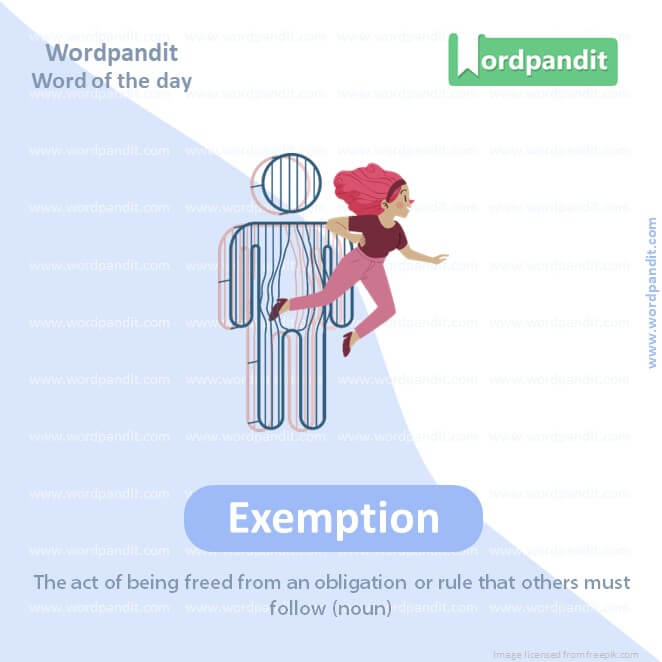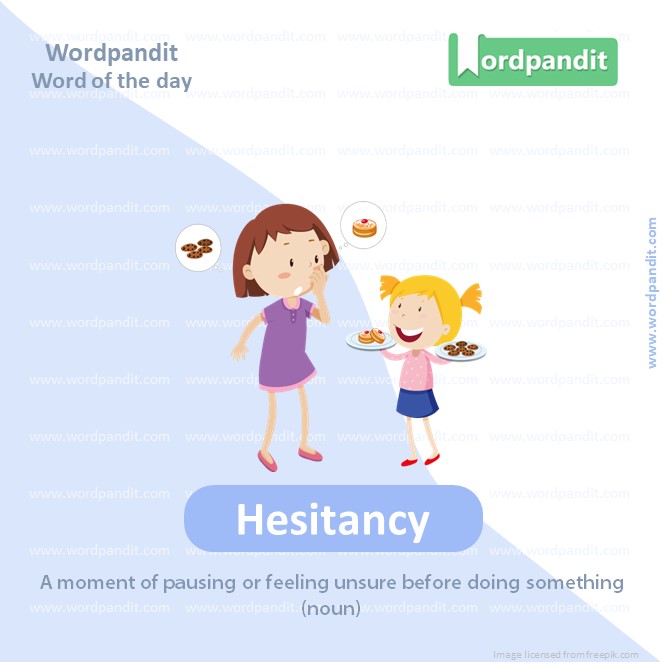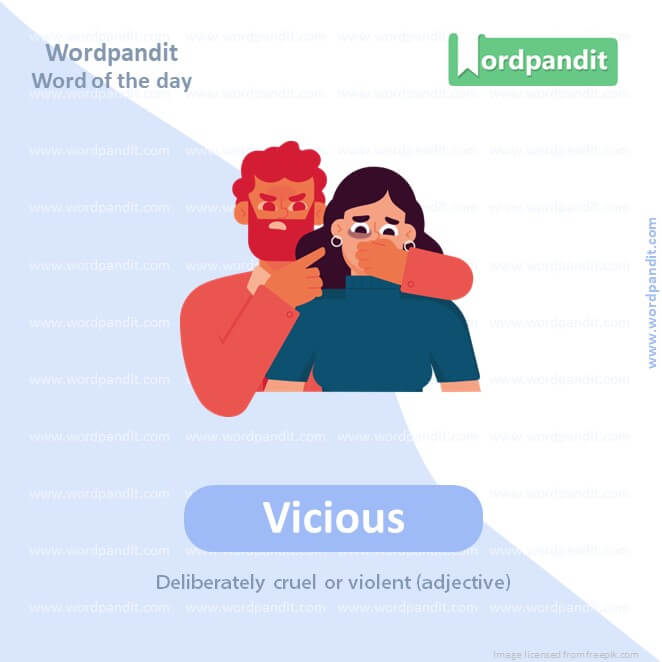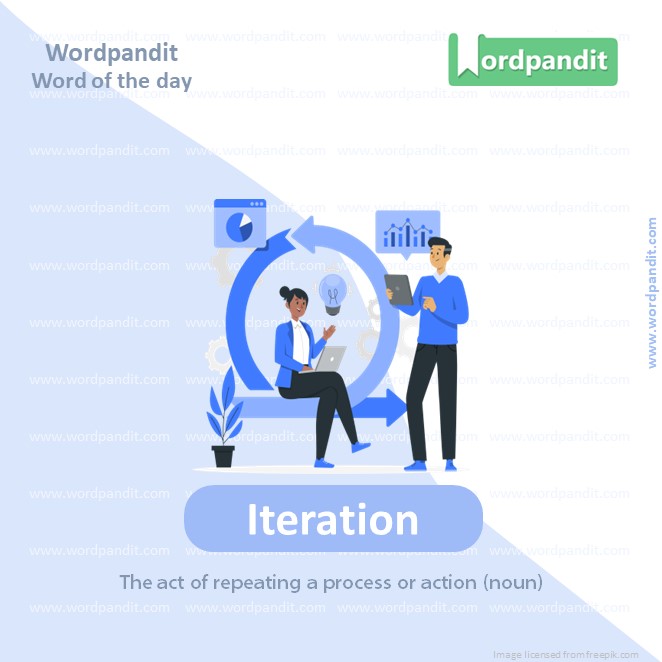Daily Vocabulary Words: List of Daily Used Words in Leading International Newspapers
Hi there. Welcome to this special section @ Wordpandit.
Our endeavour here is very simple: to highlight important daily vocabulary words, which you would come across in leading newspapers in the country. We have included the following newspapers in our selection:
• The New York Times
• The Washington Post
• Scientific American
• BBC
• The Guardian
• Psychology Today
• Wall Street Journal
• The Economist
We are putting in extensive work for developing your vocabulary. All you have got to do is be regular with this section and check out this post on a daily basis. This is your repository of words that are commonly used and essentially, we are posting a list of daily used words. Hence, this has significant practical application as it teaches you words that are used commonly in leading publications mentioned above.
Visit the website daily to learn words from leading international newspapers.

WORD-1: Exemption
CONTEXT: the number of children claiming an exemption to existing mandates has risen much more slowly, to just 2.6 percent that same year.
SOURCE: New York Times
EXPLANATORY PARAGRAPH: Imagine you don’t have to do chores because you’re sick. That’s like having an “exemption.” It means you are allowed not to do something that others have to do.
MEANING: The act of being freed from an obligation or rule that others must follow (noun).
PRONUNCIATION: ig-ZEMP-shun
SYNONYMS: immunity, freedom, dispensation, release, relief
USAGE EXAMPLES:
1. She received an exemption from the final exam due to her high grades.
2. Tax exemptions are important benefits for non-profit organizations.
3. The new law grants an exemption to small businesses.
4. He applied for an exemption from military service.

WORD-2: Imperceptible
CONTEXT: Even somewhat imperceptible declines in vaccination coverage can open up once-unthinkable vulnerabilities — and not just for measles.
SOURCE: New York Times
EXPLANATORY PARAGRAPH: If you can’t see or hear something because it’s so small or quiet, like the whisper of a butterfly, it’s “imperceptible.” It means not able to be noticed.
MEANING: So small, quiet, or subtle that it’s hard to notice or see (adjective).
PRONUNCIATION: im-per-SEP-tuh-bul
SYNONYMS: unnoticeable, undetectable, invisible, indiscernible, subtle
USAGE EXAMPLES:
1. The movement of the hour hand on a clock is imperceptible.
2. There was an imperceptible nod between the two colleagues.
3. The changes in the painting were imperceptible at first glance.
4. He spoke in an imperceptible whisper.

WORD-3: Hesitancy
CONTEXT: Americans often think of vaccine hesitancy as primarily ideological, but demographic, socioeconomic and educational drivers may be even more powerful, and as best we can measure them, the ideological drivers are also moving relatively slowly, too.
SOURCE: New York Times
EXPLANATORY PARAGRAPH: When you’re not sure about stepping into the pool because the water looks cold, that feeling is called “hesitancy.” It means you’re unsure and waiting a bit before you decide.
MEANING: A moment of pausing or feeling unsure before doing something (noun).
PRONUNCIATION: HEZ-i-tan-see
SYNONYMS: reluctance, indecision, uncertainty, doubt, vacillation
USAGE EXAMPLES:
1. There was a noticeable hesitancy in her voice when she spoke.
2. His hesitancy to commit to the plan caused delays.
3. The team’s hesitancy could cost them the game.
4. She approached the situation with hesitancy and care.

WORD-4: Vicious
CONTEXT: the largest outbreaks were in countries most Americans regard as pretty remote (Kazakhstan, Kyrgyzstan and Russia), there is also a vicious surge in Britain.
SOURCE: New York Times
EXPLANATORY PARAGRAPH: When a dog growls and tries to bite in a really mean way, that’s being “vicious.” It means acting very cruel and violent.
MEANING: Deliberately cruel or violent (adjective).
PRONUNCIATION: VISH-us
SYNONYMS: brutal, ferocious, savage, malicious, ruthless
USAGE EXAMPLES:
1. The bear became vicious when it felt threatened.
2. He faced a vicious attack by the street gang.
3. The debate turned vicious as tempers flared.
4. She spread vicious rumors that hurt his reputation.

WORD-5: Iteration
CONTEXT: This is all, of course, a new iteration of an old argument. People on both sides seem to be covering the same old song every few years, just with new lyrics.
SOURCE: New York Times
EXPLANATORY PARAGRAPH: If you try to draw a perfect star and keep redrawing it until it’s just right, each drawing is an “iteration.” It means a repetition of a process or something that is repeated.
MEANING: The act of repeating a process or action (noun).
PRONUNCIATION: it-uh-RAY-shun
SYNONYMS: repetition, version, recurrence, cycle, repetition
USAGE EXAMPLES:
1. Each iteration of the software introduced new features.
2. The team went through several iterations of the design before settling on one.
3. He improved with each iteration of his speech practice.
4. The latest iteration of the phone is faster and lighter.
WORD-6: Rampant
CONTEXT: I knew from my father and his male friends that hostility toward women ran rampant in all-male settings.
SOURCE: New York Times
EXPLANATORY PARAGRAPH: When weeds grow all over the garden really fast and everywhere, they’re “rampant.” It means spreading quickly and uncontrollably.
MEANING: Spreading unchecked; widespread (adjective).
PRONUNCIATION: RAM-pant
SYNONYMS: widespread, unchecked, unrestrained, wild, pervasive
USAGE EXAMPLES:
1. Corruption was rampant in the previous administration.
2. The disease spread rampant through the community.
3. Wildflowers grew rampant in the fields.
4. Crime is rampant in the neglected areas of the city.
WORD-7: Infidelity
CONTEXT: the most common ‘final straw’ reasons were infidelity, domestic violence and substance use.”
SOURCE: New York Times
EXPLANATORY PARAGRAPH: When someone is married or in a relationship and romantically sees someone else, it’s called “infidelity.” It means not staying loyal to their partner.
MEANING: The action or state of being unfaithful to a spouse or other sexual partner (noun).
PRONUNCIATION: in-fi-DEL-i-tee
SYNONYMS: unfaithfulness, adultery, cheating, disloyalty, betrayal
USAGE EXAMPLES:
1. The marriage broke down after his infidelity.
2. She could not forgive his repeated infidelities.
3. They attended counseling to deal with the infidelity.
4. Infidelity is a common cause of divorce.
WORD-8: Cohabitation
CONTEXT: the number of Americans who said that single motherhood and unmarried cohabitation were bad for society increased by several percentage points from 2018 to 2021.
SOURCE: New York Times
EXPLANATORY PARAGRAPH: When two people live together like a family but aren’t married, it’s called “cohabitation.” It’s like having a roommate who is also your very best friend.
MEANING: The state of living together and having a sexual relationship without being married (noun).
PRONUNCIATION: koh-hab-i-TAY-shun
SYNONYMS: living together, domestic partnership, joint habitation, coexistence, sharing a home
USAGE EXAMPLES:
1. Cohabitation before marriage is common in many cultures today.
2. The study examines the effects of cohabitation on long-term relationships.
3. They chose cohabitation over marriage as a lifestyle choice.
4. Legal issues can arise from cohabitation without legal protections.
WORD-9: Stigmatized
CONTEXT: After World War II, when marriage rates were peaking, divorces were hard to come by and heavily stigmatized, and shotgun marriages were far more common.
SOURCE: New York Times
EXPLANATORY PARAGRAPH: When someone is treated badly by others because they are different or have something others think is bad, they are “stigmatized.” It’s like being picked last for a team because you’re not as fast.
MEANING: Described or regarded as worthy of disgrace or great disapproval (verb).
PRONUNCIATION: STIG-muh-tyzd
SYNONYMS: disgraced, shamed, branded, condemned, denigrated
USAGE EXAMPLES:
1. People with mental health issues are often unfairly stigmatized.
2. The disease is highly stigmatized, even though it is common.
3. She felt stigmatized by her past mistakes.
4. Efforts are being made to destigmatize seeking help for emotional problems.
WORD-10: Floating
CONTEXT: There’s an idea that’s been floating around for a few years that when it comes to marriage, wealthy elites hold luxury beliefs.
SOURCE: New York Times
EXPLANATORY PARAGRAPH: When you throw a stick into the water and it doesn’t sink, it’s “floating.” It means staying on the surface of the water or air without sinking.
MEANING: Being buoyant and remaining on the surface of a liquid or in the air (verb).
PRONUNCIATION: FLOH-ting
SYNONYMS: bobbing, drifting, hovering, buoyant, suspended
USAGE EXAMPLES:
1. Leaves were floating on the surface of the pond.
2. The balloon kept floating higher into the sky.
3. She spent the afternoon floating in the pool.
4. A pleasant aroma was floating through the kitchen.
Vocabulary Meaning and Examples
In the fascinating world of language learning, a method particularly impactful is learning ‘vocabulary meaning and examples’. Harnessing this dual approach of understanding words through definitions and relevant examples yields a sound vocabulary grasp. Let’s explore how we can effectively learn vocabulary using ‘meaning and examples’.
Foremost, recognizing ‘meaning and examples’ involves more than just a surface glance at the definition. It requires an engaged interaction with the word, placing it within a proper context. This enriches comprehension and facilitates an innate understanding of the word’s applications.
The process of learning ‘meaning and examples’ is made highly effective through varied resources. Reading literature, online articles, and language learning platforms offer numerous examples enriching the meanings. By frequently encountering a word in various contexts, the understanding of the ‘meaning and examples’ deepens, imprinting the word into long-term memory.
When learning ‘meaning and examples’, creating personal sentences is recommended. Develop your own examples using the given word. This personal connection between learned vocabulary and your everyday life context strengthens both familiarity and recall.
Moreover, taking notes while studying ‘meaning and examples’ goes a long way in mastering vocabulary. Jotting down the definition and a couple of examples for reference leads to better recall during revisions.
Finally, teach to learn. A tried-and-true method to solidify ‘meaning and examples’ is by explaining the word to someone else. This exercise forces you to articulate the word’s usage and understanding clearly, embedding it further in your memory.
In conclusion, the journey to learn ‘vocabulary meaning and examples’ is a rewarding process that involves a multifaceted approach. As you dive into the rich experience of understanding words through ‘meaning and examples’, you uncover the nuance and depth of language, enabling you to master it in its true sense.







